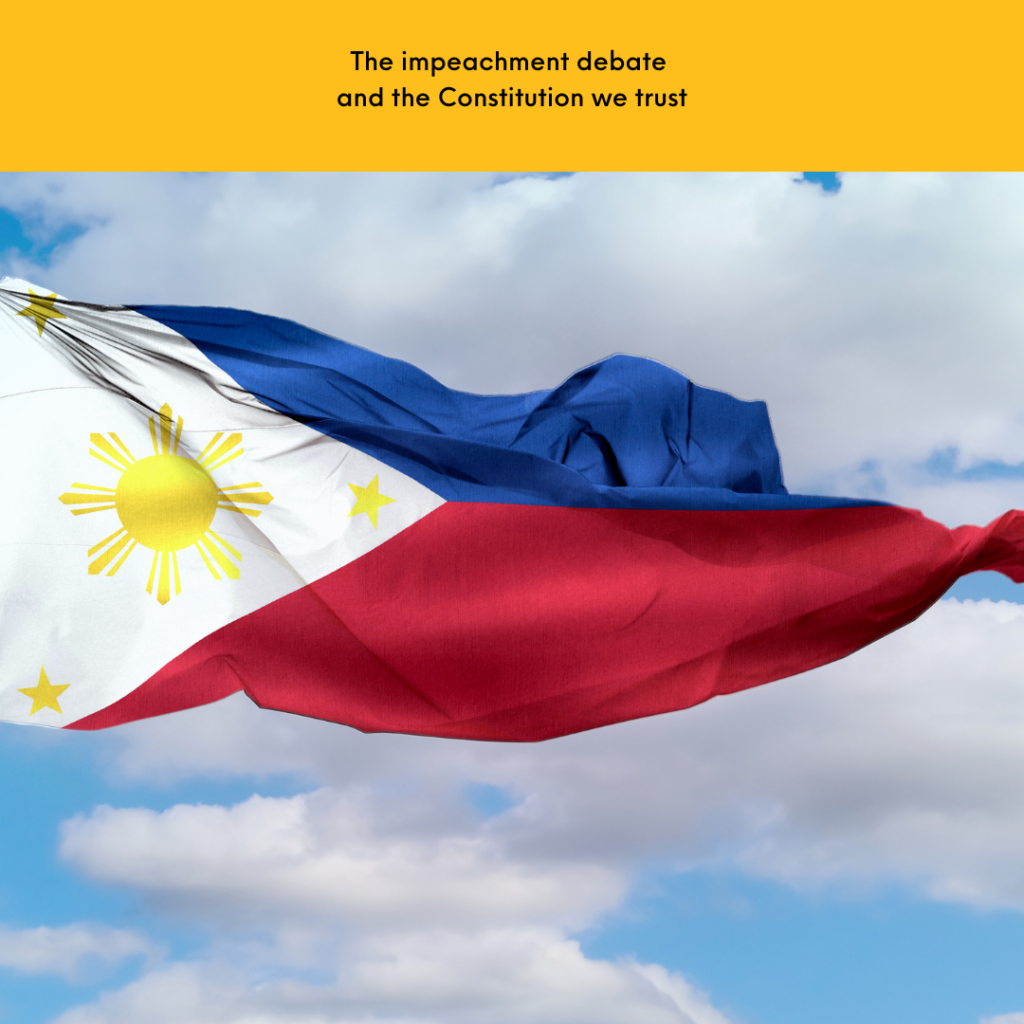
Published 29 August 2025, The Daily Tribune
The Supreme Court’s ruling in G.R. No. 278353 declaring the impeachment complaint against Vice President Sara Duterte void has sparked a vigorous national conversation. It is a debate that touches not only on one case but also on the boundaries of constitutional power and the imperative of democratic accountability. On one side are those who view the decision as judicial overreach; on the other, those who believe it is a necessary defense of constitutional order.
Arguments Against the Court’s Ruling
The House of Representatives, through its Motion for Reconsideration, argues that the Court’s decision was anchored on a factual misreading. The Constitution prohibits more than one impeachment complaint against the same official within a year, but the House insists that only one valid complaint existed—the February 5, 2025 filing. Earlier draft complaints, archived without action, should not have triggered the one-year bar.
Beyond factual error, legislators stressed that impeachment is a power given solely to Congress under Article XI. By halting the process at inception, the Court is said to have usurped a prerogative belonging to the House, disturbing the separation of powers and burdening impeachment with rules not written in the Constitution.
Intervenors—lawyers, priests, and civic groups—added that by declaring the complaint “void ab initio,” the Court effectively slammed the door on impeachment without allowing for correction of defects. For them, impeachment is a flexible political tool, not a fragile technical instrument that can be discarded at the first sign of procedural irregularity.
Former Justices Artemio Panganiban, Antonio Carpio, and Adolfo Azcuna also voiced concern. They stressed that impeachment is political in nature and entrusted to elected representatives, not judges. They noted the departure from the 2003 Francisco v. House of Representatives ruling, where the Court intervened only after Congress had acted and grave abuse of discretion was evident. For these critics, halting the case prematurely deprived both the House and Senate of their rightful constitutional role.
Finally, civic groups such as the Union of Peoples’ Lawyers in Mindanao lamented the ruling as a blow to democracy and accountability. They warned that legislators may now hesitate to file impeachment cases for fear of early judicial nullification, thereby weakening one of the people’s few remedies against misconduct by high officials.
Arguments Supporting the Court’s Ruling
Another point of view, however, emphasizes that constitutional safeguards cannot be treated lightly. If multiple complaints—draft or otherwise—were indeed filed, they could reasonably trigger the one-year bar. Allowing impeachment petitions to multiply unchecked could destabilize governance and turn the process into a partisan weapon.
From this perspective, the Court’s declaration of “void ab initio” prevents impeachment from being trivialized. Endless opportunities to “cure” defective complaints would diminish the solemnity and gravity intended by the framers. Finality, though strict, may serve as a necessary discipline.
Supporters of early intervention also argue that striking down a flawed complaint at the outset spares the nation the spectacle of a prolonged but ultimately defective impeachment. To allow Congress and the Senate to proceed with a fatally infirm case would waste time, divide the nation, and weaken faith in constitutional processes.
Seen in this light, judicial review serves not to cripple impeachment but to protect it. By enforcing clear rules, the Court ensures that only serious, constitutionally sound complaints reach the Senate for trial. This preserves impeachment as an instrument of accountability rather than reducing it to a political tool of harassment.
The clash of these arguments reveals the delicate balance at the heart of our system: the need to uphold Congress’s exclusive authority over impeachment while also preserving the Court’s power to check grave constitutional violations. Both sides carry weight, and both deserve serious thought. In the end, what is at stake is not only the fate of one official but the strength of our institutions. It is now for the Supreme Court, in resolving the motions for reconsideration, to show the wisdom and fairness the Constitution demands.
As I have said before, and I will say again: ours is a system built not only on law but on trust. Let us have faith in the Supreme Court—men and women of competence and integrity—that they will resolve this controversy with objectivity, wisdom, and prudence. In doing so, they safeguard not just the letter, but the spirit of the Constitution. And when the decision is rendered, we must respect the outcome, even if it may not align with our preference or belief, for respect for institutions is the cornerstone of democracy.
For more of Dean Nilo Divina’s legal tidbits, please visit www.divinalaw.com. For comments and questions, please send an email to cad@divinalaw.com.

